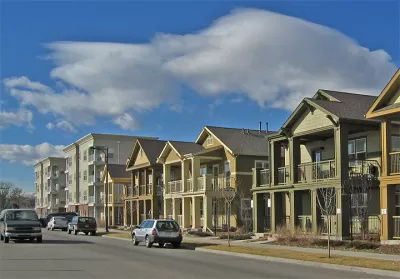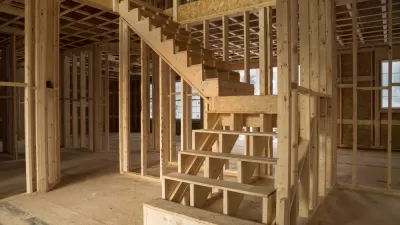Hundreds of homes built under Denver's affordable housing program were sold to buyers who didn't qualify for them. Now, the city is trying to clean up the mess.

Denver is attempting to find a solution after the revelation that about 300 homes built for low-income residents were sold to buyers who did not qualify for affordable housing. Now, city officials have proposed a compromise they hope will eventually recoup the affordable units without kicking people out of their homes. Andrew Kenney reports in the Post:
The new deal is simple: Affected homeowners would be allowed to keep their properties for as long as they want, even if they broke the income limits. But when they sell the houses, they would have to obey the program's strict pricing limits ... When they eventually move, the income restrictions on their properties would resume, staying in place for however many years the ineligible homeowner chose to stay in the home.
The pathway also applies to people who are breaking other rules, including illegally renting out their homes.
Officials claim the root of these mistaken transactions is an error at the state level resulting in local affordability restrictions not being presented clearly during sales. But attorneys for the homeowners accuse the city of negligence in administering the affordable housing program over the last 15 years.
FULL STORY: Denver offers a fix for affordable housing mess, but dozens of homeowners could take a hit

Montreal Mall to Become 6,000 Housing Units
Place Versailles will be transformed into a mixed-use complex over the next 25 years.

Planetizen Federal Action Tracker
A weekly monitor of how Trump’s orders and actions are impacting planners and planning in America.

DARTSpace Platform Streamlines Dallas TOD Application Process
The Dallas transit agency hopes a shorter permitting timeline will boost transit-oriented development around rail stations.

Study: 4% of Truckers Lack a Valid Commercial License
Over 56% of inspected trucks had other violations.

Chicago Judge Orders Thousands of Accessible Ped Signals
Only 3% of the city's crossing signals are currently accessible to blind pedestrians.

Philadelphia Swaps Car Lanes for Bikeways in Unanimous Vote
The project will transform one of the handful of streets responsible for 80% of the city’s major crashes.
Urban Design for Planners 1: Software Tools
This six-course series explores essential urban design concepts using open source software and equips planners with the tools they need to participate fully in the urban design process.
Planning for Universal Design
Learn the tools for implementing Universal Design in planning regulations.
City of Mt Shasta
City of Camden Redevelopment Agency
City of Astoria
Transportation Research & Education Center (TREC) at Portland State University
US High Speed Rail Association
City of Camden Redevelopment Agency
Municipality of Princeton (NJ)





























